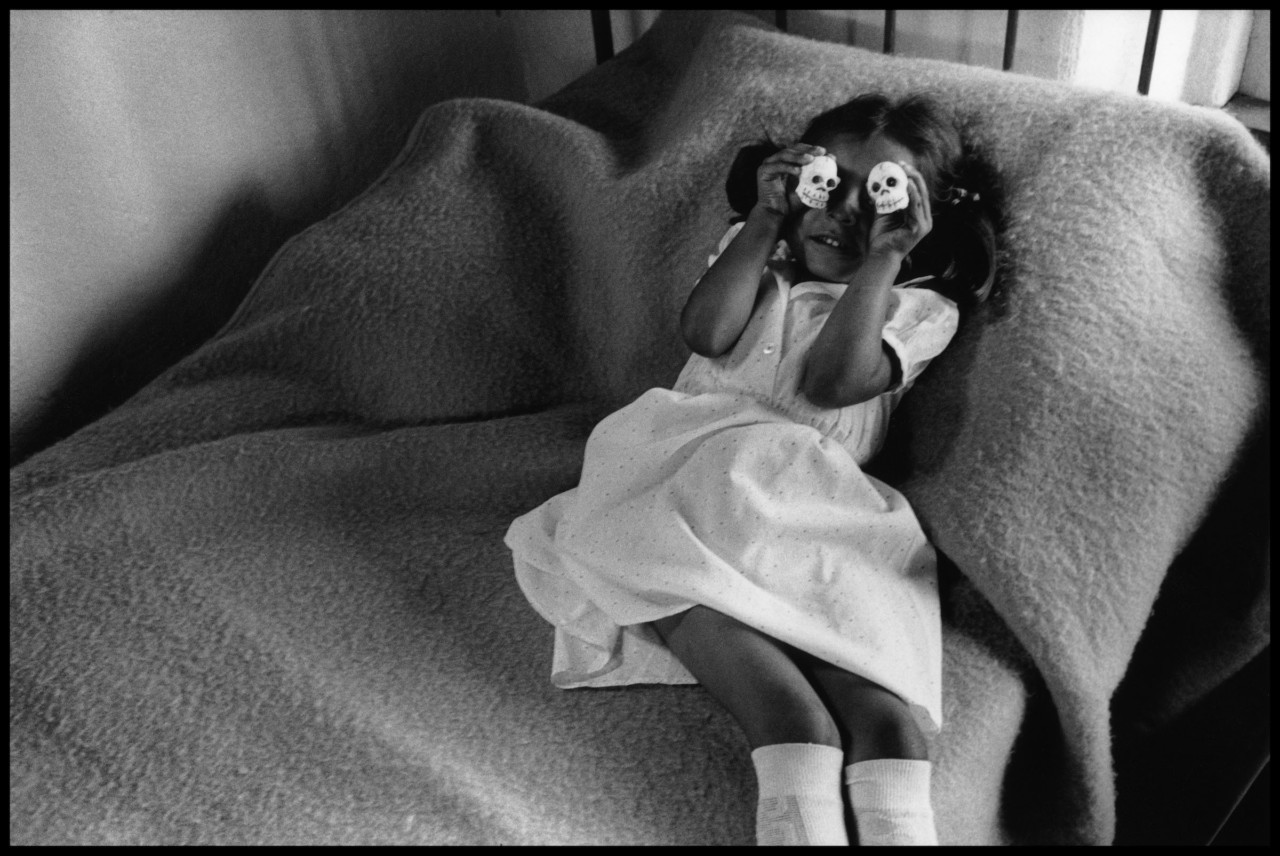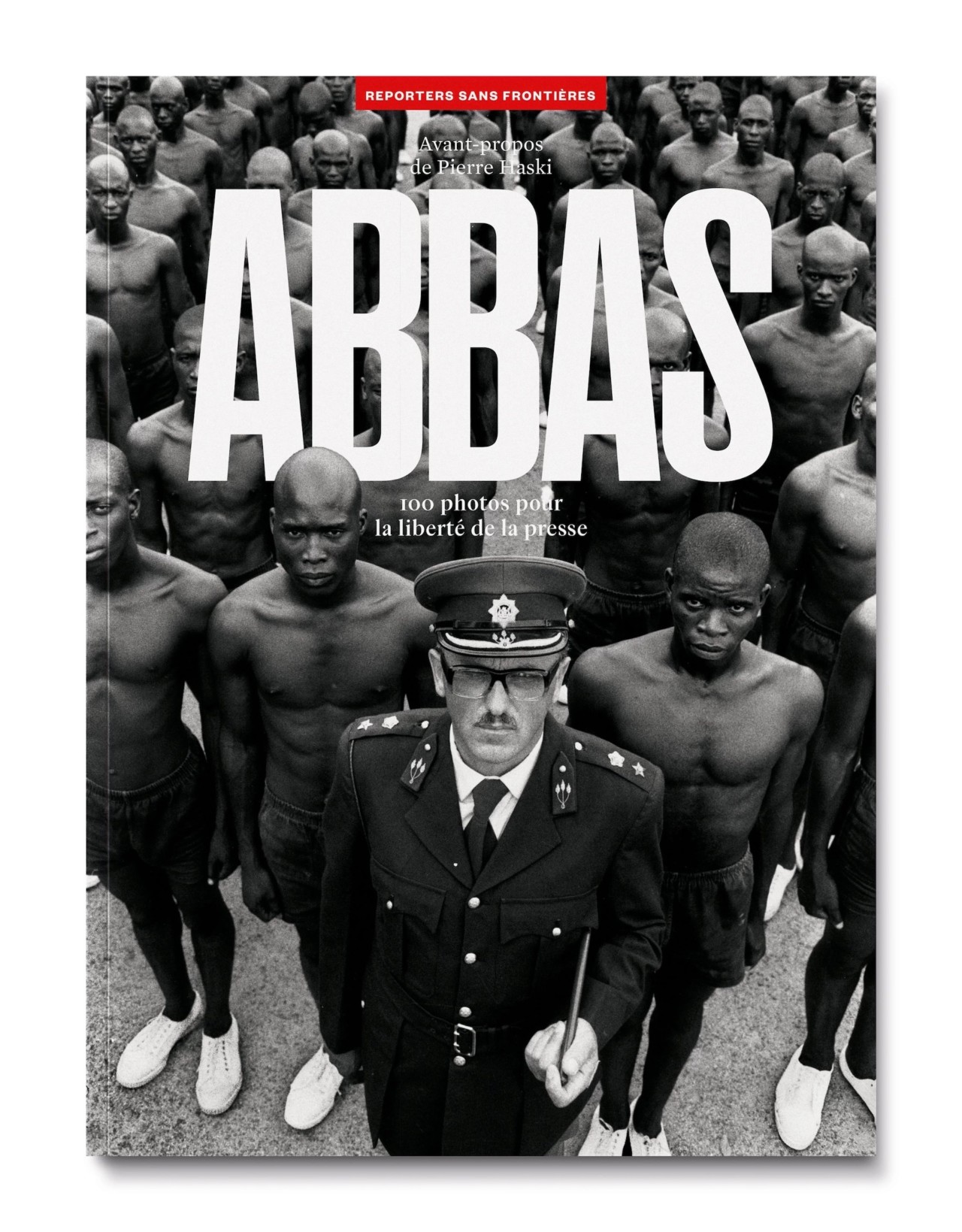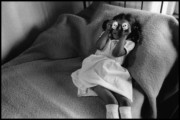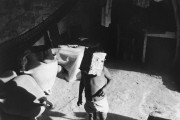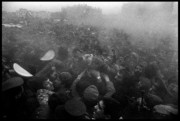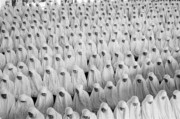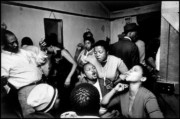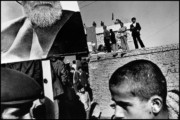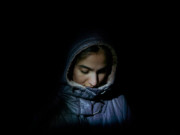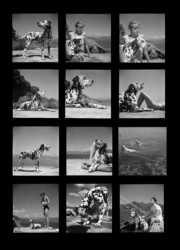100 Photos for Press Freedom by Abbas
The Iranian-born photographer was a close supporter of Reporters Without Borders. Now, five years after his death, the NGO celebrates his work in the latest of its RFS Albums.
“This album is a tribute to a great humanist photographer, to a free man, ” writes Pierre Haski, president of Reporters Without Borders in France (RSF), introducing the latest in a long line of affordable illustrated publications — the RSF Album — created to support the NGO, founded in 1985.
This edition, number 72 in the series, and titled 100 Photos for Press Freedom by Abbas (priced €12.50, with all profits going to the NGO), is a bit special, not least because the Magnum photographer, who died nearly five years ago, was so close to the organization. It is also special to Haski because he had known Abbas for such a long time, first working together in South Africa in 1978 during apartheid.
The photographer’s most iconic photograph from that era is published on the cover of the album (below), and inside there’s a short text by his son, Hamish Crooks, about ‘Le colonel,’ the head of the Police Academy for Black people in Hamanskraal, captured in a severe, authoritative pose in front of his students, their faces a picture of fear and trepidation.
“The photo is one of the most enduring images of the 20th century, summarizing the injustices, contradictions and realities of that bloody era,” writes Crooks. “On the front page of magazines around the world, it helped raise public awareness of the racist, murderous ideology of the South African government.”
Haski, who was a journalist working for Agence France-Presse at the time, provides some additional context to the image.
“South Africa at that time was firmly in the hands of the apartheid regime… Iran, at the same time, was still firmly in the hands of the Shah, an ally of the Pretoria regime in the name of a common sentiment of anti-communism in the midst of the Cold War. … For that reason, an Iranian photographer was always received as a ‘friend’ in South Africa.
“Abbas knew the story and used its ambiguity to take some of the most powerful pictures of apartheid South Africa. His photograph of [colonel S.J. Malan] — stiff as a ramrod in front of a battalion of Black recruits, bare-chested and heads shaved — remains today one of the most commonly published photographs documenting that (thankfully) bygone era.”
The RSF Album, which brings together his black-and-white photographs in a single monograph for the first time, consists of a portfolio of 100 pages divided into four chapters illustrating different themes that Abbas pursued throughout his career as a photojournalist: ‘Chaos’, ‘Iran’, ‘Gods’, ‘Vision.’
“I remember a man who was cultured, attentive, unfailingly calm, focused on his work and curious about everything,” Haski recalls. “And one particular moment, while he was watching the feed of AFP dispatches arriving on the teleprinters — the news from Qom, the Iranian holy city, made him jump. It mentioned religious demonstrations, and Abbas told me that if they spread, the fate of the monarchy could be at stake.
“He returned to the Iran in which he was born in 1944, but which he had left for Paris, and to an Islamic revolution which he had anticipated — and whose totalitarian nature he was quick to understand. His black-and-white photographs of the feverish first days of the revolution have all become historic documents.”
Fellow Iranian, Shirin Ebadi, winner of a Nobel Peace Prize in 2003, writes some accompanying words to the section of the album dedicated to Iran. “Browsing through the pages of the section with Abbas’ photographs of his home country, you get a better understanding of why the people of Iran turned away from autocratic power to embrace the revolution. And how the same people, who voted massively in favor of the new regime, now want to abolish it by rising up again, 43 years later… with the will, and the wish that can already be seen in Abbas’s photographs [summarized in their motto], ‘Women, Life, and Freedom.’”
Further texts in the album are written by Magnum colleague Ian Berry, who describes “an absolute perfectionist” who taught him the importance of professionalism: “as soon as he returned from an assignment, he meticulously selected, edited and captioned his photos.”
His wife, Melisa Teo, describes a man who “remained modest and discreet,” despite his achievements. “His photos and stories have changed lives and inspired many. While some preached spirituality, he practiced it.”
Above all, the album is a tribute to the life’s work of Abbas, whose “death in 2018 bereaved the world of photography of one of its greatest storytellers.” But it is tinged with sadness that it was not published within his own lifetime.
“It was a 10-year-old project, which we talked about shortly before his death in 2018,” recalls Christophe Deloire, Secretary-General of RSF. “He had arrived in a cafe on the Place du Palais-Royal in Paris with a complete portfolio, as if time was pressing, as if the obvious truth had to be published as quickly as possible. On our side, we were convinced that we had the time.
“Counting on having enough time is a terrible mistake, with a high price to pay. Abbas is no more, and if this is an album about him, it is an album without him. In a posthumous form of generosity, it has been donated to us by Melisa Teo and Behnam Attar, the photographer’s wife and brother, as well as the Fonds Abbas Photos.”
"The freedom to inform, tell, show the world, seemed to him all the more precious because he had so often seen it flouted and trodden."
-
All proceeds from the album will go to RSF, an NGO that Abbas remained a close association with. “Abbas was a discreet but continual presence [at our AGMs],” writes Haksi. “He was keen on attending them, he told me, because the freedom to inform, tell, show the world, seemed to him all the more precious because he had so often seen it flouted and trodden — starting, of course, with this revolution in his own country of origin, Iran, first in an uprising against a harsh dictatorship, soon to be replaced by an equally relentless form of oppression.
“Contributing to RSF and traveling to vote at our General Assemblies was his way of defending his own freedom as a photographer and as a human being.”
• 100 Photos for Press Freedom by Abbas can be purchased for €12.50 here.


